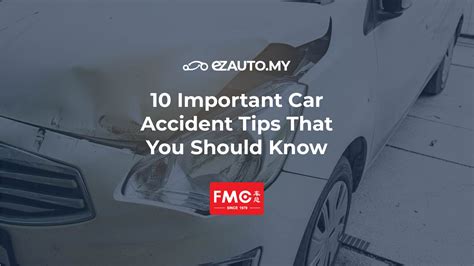Staying safe on the road is a top priority for any driver, and while accidents can happen to anyone, being prepared and knowing how to react can significantly reduce the risk of injury or damage. Here are 10 car accident tips to help you stay safe, ranging from preventive measures to post-accident procedures.
1. Maintain Your Vehicle
Regular vehicle maintenance is crucial for preventing accidents. Ensure that your car’s tires, brakes, suspension, and steering are in good condition. Regularly check and maintain the proper tire pressure, as underinflated tires can lead to loss of control. Also, make sure all lights, including brake lights and turn signals, are functioning properly to maintain visibility on the road.
2. Drive Defensively
Defensive driving involves being aware of the actions of other drivers and adapting your driving to avoid potential hazards. Keep a safe distance from the car in front of you, avoid distractions while driving, and never assume another driver will act in a certain way. Anticipate potential hazards and be prepared to react.
3. Wear a Seatbelt
Wearing a seatbelt is one of the most effective ways to save lives and reduce injuries in car accidents. Ensure that you and all passengers are buckled up before starting the car. Adjust the seatbelt to fit snugly across the shoulder and chest, and never drive with a loose or improperly fitted seatbelt.
4. Avoid Distractions
Distracted driving, such as using a phone, eating, or talking to passengers while driving, significantly increases the risk of an accident. Keep your eyes on the road and hands on the wheel at all times. If you must take a call or send a message, pull over to a safe location first.
5. Be Aware of Weather Conditions
Driving in adverse weather conditions, such as rain, snow, or fog, requires extra caution. Slow down, use low gear if driving a manual transmission, and increase your following distance. Avoid driving during heavy rain or snow if possible, as visibility and road conditions can be severely compromised.
6. Keep an Emergency Kit in Your Car
Have a car emergency kit that includes items like a first aid kit, jumper cables, flashlight, and reflectors. This kit can be invaluable in the event of an accident or breakdown, especially if you’re in a remote area with limited access to assistance.
7. Know What to Do in Case of an Accident
If you’re involved in an accident, stay calm and follow these steps: - Move to a safe location if possible to avoid further risk. - Check for injuries and provide assistance if you’re able. - Call the police and report the accident. - Exchange information with the other parties involved, including contact and insurance details. - Document the scene with photos and notes, if it’s safe to do so.
8. Understand Your Insurance
Before an accident happens, make sure you understand your car insurance policy, including what’s covered, the deductible amount, and how to file a claim. Knowing this information can help reduce stress in the event of an accident.
9. Stay Alert and Avoid Fatigue
Driving when tired can impair your reaction times and judgment, increasing the risk of an accident. If you’re feeling tired, pull over at a safe location and rest. Avoid driving during your usual sleep hours, and consider having a rested passenger to help keep you awake.
10. Educate Yourself and Others
Continuously update your knowledge on safe driving practices and share this information with others, especially new drivers. Participate in defensive driving courses if possible, and encourage your friends and family to do the same. Education and awareness are key to preventing accidents.
Conclusion
Safety on the road is everyone’s responsibility. By following these car accident tips, you can significantly reduce your risk of being involved in an accident and stay safe on the road. Remember, prevention is key, but knowing how to react in the event of an accident is also crucial. Stay informed, stay alert, and drive safely.
What are the most common causes of car accidents?
+The most common causes of car accidents include distracted driving, speeding, driving under the influence, and reckless driving. Additionally, failure to obey traffic laws, such as running red lights or stop signs, and driving in poor weather conditions without proper precautions can also lead to accidents.
How can I prevent accidents caused by other drivers?
+While you cannot control the actions of other drivers, you can reduce your risk by driving defensively. This includes maintaining a safe following distance, being aware of your surroundings, avoiding distractions, and anticipating potential hazards on the road.
What should I do immediately after a car accident?
+Immediately after a car accident, ensure you and all parties involved are safe. Move to a safe location if possible, check for injuries, and provide assistance if necessary. Then, call the police, exchange information with the other parties, and document the accident scene.
By taking proactive steps and staying informed, you can protect yourself and others from the risks associated with car accidents. Remember, safety is a collective effort, and every responsible driver contributes to making our roads safer.



